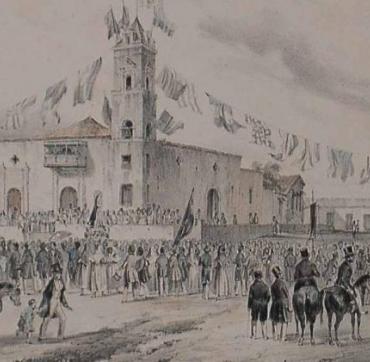Brazil Unveils World’s First Ethanol-to-Hydrogen Station
especiales

Brazil Unveils World’s First Ethanol-to-Hydrogen Station
The University of São Paulo (USP) announced on February 19, 2025, that Brazil now hosts the world’s first experimental station producing renewable hydrogen from ethanol.
Researchers at USP’s Research Center for Innovation in Greenhouse Gases (RCGI) drive this project, funded with 50 million reais ($9.5 million) from Shell Brasil and partners.
This initiative positions Brazil as a potential leader in sustainable energy, leveraging its vast ethanol production from sugarcane. Governor Tarcísio de Freitas visited the pilot plant at USP’s Cidade Universitária campus in São Paulo on Wednesday.
He praised its role in pushing the state’s economy toward a low-carbon future. The facility, spanning 425 square meters, produces 4.5 kilograms of hydrogen hourly, fueling three buses and a Toyota Mirai daily.
Raízen supplies the ethanol, while Hytron’s steam-reforming technology converts it into hydrogen, achieving 99.999% purity. Shell Brasil, Toyota, and SENAI CETIQT join USP in this collaboration, testing efficiency and vehicle performance since operations began in late 2024.
The project aims to cut 3,000 tons of CO2 yearly if scaled to replace diesel buses on campus. Brazil’s ethanol infrastructure, built since the 1970s, gives it an edge, producing over 27 billion liters annually.
Julio Meneghini, RCGI’s scientific director, noted costs of $6-$9 per kilogram, far below California’s $13 electrolysis benchmark. This efficiency could decarbonize transport, steel, and cement sectors, tapping into Brazil’s National Hydrogen Program.
Brazil’s Renewable Hydrogen Project
However, challenges persist, as unused hydrogen requires flaring, and full emissions data remain under review. Plans target a larger plant by 2027, producing 44.5 kilograms hourly, if pilot results hold.
Governor Freitas pledged regulatory support to expand this model statewide. USP rector Carlos Gilberto Carlotti Junior emphasized the project’s global potential, highlighting Brazil’s chance to lead in renewable hydrogen.
The station, backed by FAPESP and industry, tests a practical solution for a world seeking cleaner energy. Data collection, set to wrap by mid-2025, will determine its scalability. This experiment showcases Brazil’s knack for turning agricultural strength into energy innovation.
Business leaders eye its progress, as success could reshape energy markets and cut fossil fuel reliance. The story unfolds as researchers refine this pioneering technology.














Add new comment